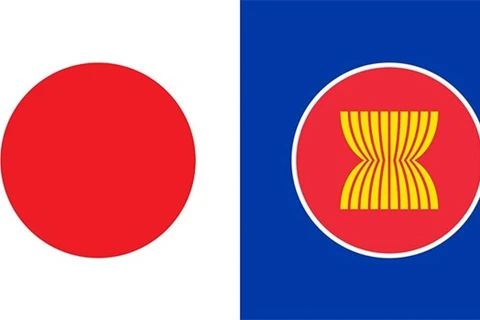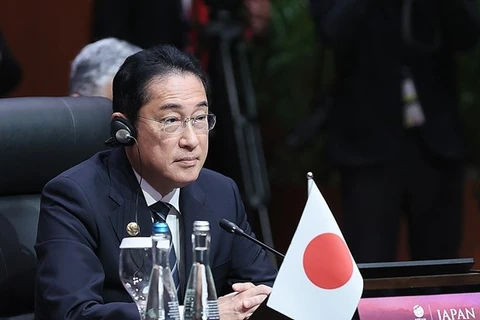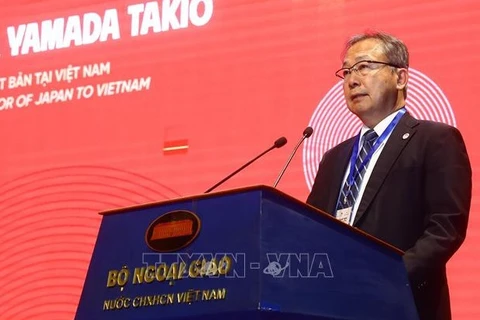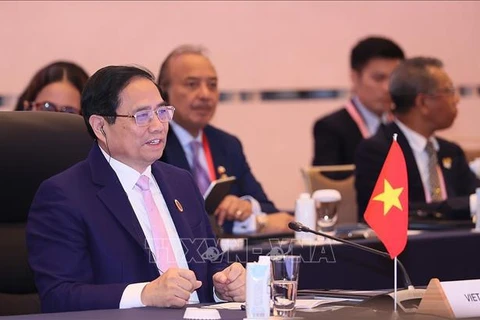Tokyo (VNA) – Japan and the Association of Southeast Asian Nations (ASEAN) countries will integrate QR code payments from 2025, aiming to facilitate spending between these countries without the need to exchange currency, which is time-consuming, especially for tourists, according to Japan’s Ministry of Economy, Trade and Industry (METI).
A representative of METI said that the ministry is in discussions with governments and central banks of countries around the world, including Southeast Asian countries in this regard. The Cashless Promotion Council is accelerating the progress of building a payment system that allows the connection between domestic services and international ones, the representative said, elaborating that it is expected to be completed in 2024.
In Japan, QR code payment services are being provided by a number of businesses such as Paypay and Rakuten Pay. Accordingly, Japanese consumers will scan the store's QR code with their smartphone to pay online but it only applies to the registered service. Overcoming this shortcoming, the new system will help consumers pay normally for any type of service.
Five ASEAN member countries, namely Singapore, Indonesia, Thailand, Malaysia and Philippines, signed a memorandum of understanding on payment integration between the countries in 2022 and began interaction in several areas. Japan is also expected to promote negotiations with ASEAN countries to soon deploy this type of service between Japan and ASEAN.
According to METI's latest data, the amount of non-cash payments in Japan in 2022 is about 111 trillion JPY (about 750 billion USD), of which payments using QR codes and other codes account for only 2,6%. Meanwhile, according to Google statistics, the value of digital payments in six major Southeast Asian countries reached 858 billion USD in 2022. A survey by Fidelity National Information Services (FIS), a US financial services company, showed that digital payment, including QR codes, accounts for 28% of total payments in Indonesia and 23% in Thailand./.
A representative of METI said that the ministry is in discussions with governments and central banks of countries around the world, including Southeast Asian countries in this regard. The Cashless Promotion Council is accelerating the progress of building a payment system that allows the connection between domestic services and international ones, the representative said, elaborating that it is expected to be completed in 2024.
In Japan, QR code payment services are being provided by a number of businesses such as Paypay and Rakuten Pay. Accordingly, Japanese consumers will scan the store's QR code with their smartphone to pay online but it only applies to the registered service. Overcoming this shortcoming, the new system will help consumers pay normally for any type of service.
Five ASEAN member countries, namely Singapore, Indonesia, Thailand, Malaysia and Philippines, signed a memorandum of understanding on payment integration between the countries in 2022 and began interaction in several areas. Japan is also expected to promote negotiations with ASEAN countries to soon deploy this type of service between Japan and ASEAN.
According to METI's latest data, the amount of non-cash payments in Japan in 2022 is about 111 trillion JPY (about 750 billion USD), of which payments using QR codes and other codes account for only 2,6%. Meanwhile, according to Google statistics, the value of digital payments in six major Southeast Asian countries reached 858 billion USD in 2022. A survey by Fidelity National Information Services (FIS), a US financial services company, showed that digital payment, including QR codes, accounts for 28% of total payments in Indonesia and 23% in Thailand./.
VNA
























